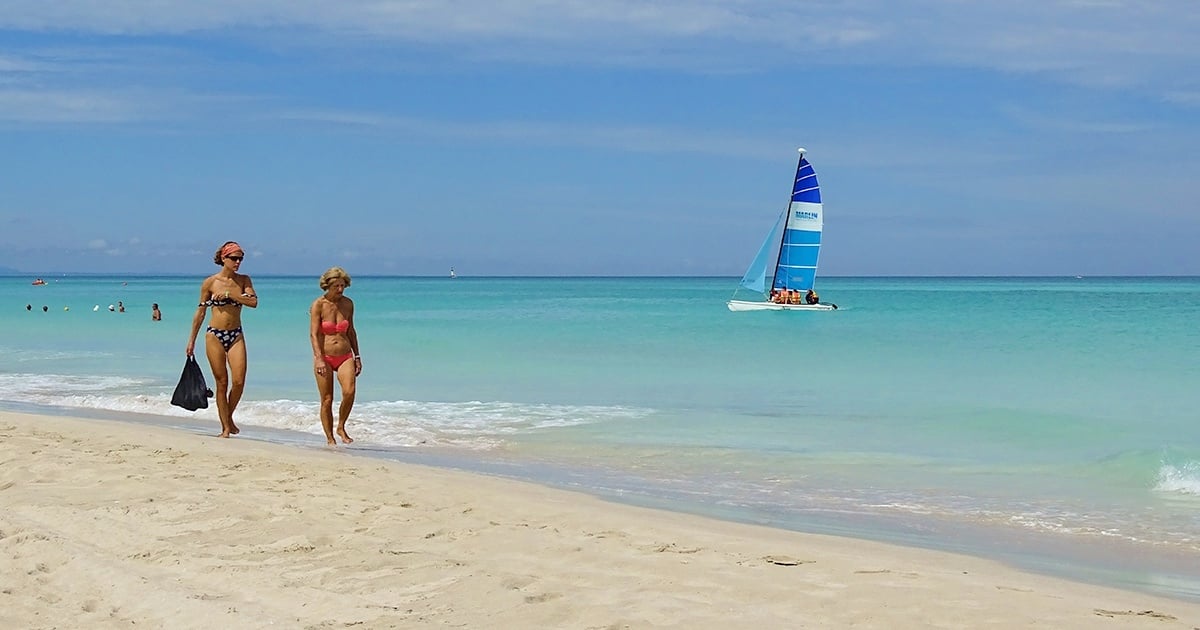
The Embassy of Cuba in Russia has categorically denied the rumors circulating about a supposed outbreak of a deadly virus and attacks by "killer flies" on tourists on the island.
In an official statement, Cristina León, advisor for tourism affairs at the Cuban diplomatic mission, confirmed that the epidemiological situation in the country is stable and that there are no reports of such incidents, according to RATA-News.
"In Cuba, there is no outbreak of diseases caused by deadly viruses or attacks by killer flies. Currently, the epidemiological situation is stable," stated the official.
"In recent weeks, there has been no increase in requests for medical attention due to fever in any region of the country. Among the local disease vectors, there is no aggressive fly capable of transmitting deadly diseases through its bite," he added.
The clarification comes after various platforms shared allegedly incorrect information linking Cuba to Marburg fever, a severe and highly contagious disease caused by the virus of the same name.
According to the embassy, this virus was first identified in 1967 and has caused outbreaks in African countries such as Angola, Ghana, and Tanzania, but it has never occurred in Cuba.
The most recent known outbreak occurred in Rwanda in September 2024 and was contained by October, according to the World Health Organization (WHO), which states that the risk of global spread is low.
Cuba, the embassy boasted, has a robust international medical control program that covers 100% of its borders, with mechanisms to promptly detect potential imported diseases, extending from primary healthcare to the tourist sector.
Likewise, the Pedro Kourí Institute of Tropical Medicine, renowned internationally, ensures a high level of diagnosis and treatment in the country.
The statement also denied claims that the UK Foreign Office had issued warnings against traveling to Cuba due to an outbreak of Marburg fever.
The latest update on the subject from the official British website, dated October 4th, makes no mention of Cuba.
Regarding the so-called "killer flies," the embassy reiterated that there is no evidence of their presence on the island and reminded that bites from sand flies, which are common in the tropics, do not pose a danger to tourists.
He added that these can be effectively treated with repellents and locally manufactured products.
This denial, in what appears to be a desperate attempt to protect the tarnished image of Cuban tourism, seeks to counter the misinformation that could alarm tourists and further harm one of the island's economic pillars.
Recently, several Russian tourists expressed their discomfort on social media regarding the bites from mosquitoes during their stay in hotels and beaches in Cuba.
According to testimonies, the bites from these small insects are initially painless, but hours later, they cause intense itching and the appearance of red blisters on the skin.
In some cases, symptoms do not relieve with common antihistamines, which has raised concerns among visitors, reported RATA-News.
Despite the recorded complaints, Cuba remains an attractive destination for Russians. From January to August 2024, the island welcomed over 133,000 tourists from Russia, marking a 125% increase compared to the same period in 2023.
Russia is now the third largest source market of tourists to Cuba, surpassed only by Canada and Cubans living abroad.
The Ministry of Tourism of Cuba anticipates the arrival of over 200,000 Russian visitors before the end of the year, reaffirming interest in the island despite potential inconveniences.
Alongside Russia, Portugal stands out as the other source market for tourists that has recorded a modest increase amid the chronic crisis affecting the tourism industry in Cuba.
The island is facing one of its greatest downturns in this sector, marked by a drastic decrease in international visitors from key markets such as North America, Spain, Germany, Mexico, Argentina, and Colombia.
According to data from the Travel And Tour World portal, tourist arrivals in Cuba decreased by 48.23% from January to October 2024 compared to 2019, the last year before the pandemic.
This collapse has severely impacted the sector's revenue, which fell from generating 3.185 billion dollars in 2019 to just 1.216 billion in 2023, a reduction of 61.82%.
Cuban economist Pedro Monreal criticized the recent statements made by the Minister of Tourism, Juan Carlos García Granda, and the Cuban regime's focus on prioritizing investments in the tourism sector.
Frequently Asked Questions about the Epidemiological Situation in Cuba
Is there an outbreak of a deadly virus in Cuba?
There is no outbreak of a deadly virus in Cuba. The Cuban Embassy in Russia has denied rumors of an alleged outbreak of a deadly virus on the island, stating that the epidemiological situation is stable. There are no records of such incidents or the presence of "murderous flies" in the country.
What is the situation with the Oropouche virus in Cuba?
The Oropouche virus is present in all provinces of Cuba. This virus, transmitted by mosquitoes, has raised a health alert on the island due to a lack of resources to control its spread. Although the disease is generally mild, with symptoms such as fever and muscle pain, the situation of the healthcare system complicates its management.
What measures has Cuba taken to protect tourists from illnesses?
Cuba has implemented a vaccination program against yellow fever for international travelers. Although there has been no transmission of yellow fever on the island since 1904, health authorities decided to vaccinate tourists who travel to high-risk areas. Additionally, Cuba assures that it has a strong international medical control program.
What impact does the health situation have on tourism in Cuba?
The health situation has severely impacted tourism in Cuba. The island's tourism industry is facing a crisis due to the decline in international visitors and public health issues. However, Russian tourism has shown growth, with over 133,000 Russian tourists visiting Cuba from January to August 2024.
Filed under: